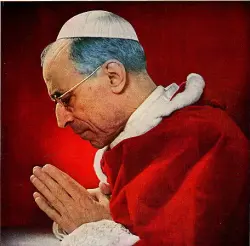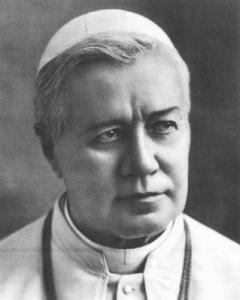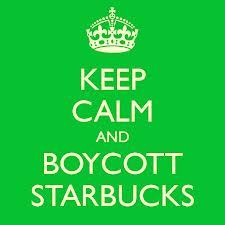How To Cope With A Heretical Pope

in saecula saeculorum
In these momentuous months, I will try to give some clarity – at least according to my limited lights – as to what is the situation in front of us.
—-
A bad Pope can be very bad, a material heretic or a formal heretic.
If he is a very bad Pope, the faithful will have a clear duty to say so in order to avoid the faithful being confused.
If he is a material heretic, the faithful will have to point out that a pope spreads heresies if not in an “officially official” manner, certainly in a factual, “off-the-cuff” one. It is not for the faithful to declare a Pope deposed, or not in charge. The faithful will refuse obedience to the heresies of the Pope. This is all.
If the Pope is a formal heretic, the faithful will have to point out that the Pope is a formal heretic, and hope and pray that (and invite the bishops and cardinals to) the said bishops and Cardinals take steps to this effect. It is still not for the faithful to declare a Pope deposed.
If the Cardinals and Bishops do not act, we are in the same situation already lived in the time of Pope Honorius: officially heretical Pope, who has supported his heresy with a letter meant to solve a controversy and therefore to be used in a public setting and, by extension, to be respected by the entire Church, sits on the throne of Peter. Bishops do not dare to dethrone him. Truth does not change. Pope remains Pope. Divine Providence will deal with this situation at some point, which cannot be seen in the moment (in the case of Honorius, the account was settled only after Honorius’ death; a development uncertain during the life of the heretical Pope).
We are now somewhere between the second and third scenario. Pope Francis has been a material heretic for a long while. Reasonable people can argue whether Amoris Laetitia does or does not constitute – according to how to interpret the willed level of deception and provocation – formal heresy. Francis’ letter to the bishop of Buenos Aires – clearly meant, like Honorius’ one, to be circulated, as the bishop was writing in the name of the Argentinian ones and was not expressing a private doubt – reinforces in my eyes the argument of the formal heresy.
Some Cardinals are now clearly thinking the same, and they are seemingly testing the obduracy of Francis in proclaiming his heresy even as they offer him a way out, as happened in the case of John XXII. They might, or might not, take further steps.
Note here: the SSPX has not declared the Pope deposed, though through Bishop Fellay they have declared him a (material) heretic. The SSPX undoubtedly keep seeing in him the Pope.
My suggestion to all my readers is that they should not lose any sleep thinking whether they should declare a Pope deposed. It reminds me of the people “declaring” Trump “not elected”. The facts look at you square in the face, and nowhere in the 2000 years long history of the Church it is said that it is for the single faithful to make such decisions.
Truth will triumph in the end. This can be in three months, in three years, or in 300 years. You should rather worry yourself with the rather earlier moment in which you and everyone of us will see this Truth in front of ourselves, and will be judged accordingly.
Pope Francis and his possible heretical successors can only try to confuse me for as long as I live, and my death will be the instantaneous end of every confusion. I have no intention of allowing him (or his successors) even one second of doubt. My duty is to soldier on at Christ’s side, according to my lights, in prayer, and without thinking I can decide who is Pope. My religion gives me a sure guidance as to how to deal, in everyday matters, with a heretical Pope. It is not for me to decide to what extent the successor of a heretical Pope is a legitimate Pope (heretical Pope Honorius was declared a heretic by bishops who had remained silent in front of his very heresy). The only thing I can do is to cry out loud for what appears to be the standard solution: bishops – does not matter how many – call an imperfect council which officially declares the Pope a heretic, and therefore declares him already deposed by God by way of his own heresy, and proceeds to elect a new one: and let truth and falsehood fight as hard and as long as Divine Providence allows, and for centuries if it needs be. We will soldier on at the side of Christ and will be happy to die in His shadow, in the midst of crumbling worlds.
But none of these declarations, councils, & Co. has to happen. You need none of this to collaborate with Grace to save your soul. You need none of this to try to work with Grace in the saving of the souls near you. You go on proclaiming the Truth of Christ and hope that this will be counted for you the day you die.
You are a simple soul that will be judged according to your decisions as everyday Catholic, not according to your decision as Popemaker.
M
Posted on November 22, 2016, in Catholicism, Conservative Catholicism, Traditional Catholicism and tagged Heresy within the Church, Heretics, Pope Francis. Bookmark the permalink. 7 Comments.




















Ben detto signore! Thinking is a difficult task, it is the hardest work a man can do– that is perhaps why so few indulge in it. +Sheen.
Sensible advice Mundabor.
Here’s Mose Allison who just died singing ‘I don’t worry about a thing’ > http://www.jazzonthetube.com/page/25037.html
After I read the 13 page critique of Amoris Laetitia by the 40 or so theologians there is no doubt in my mind that Francis is a formal heretic. This evil will be smashed, like a cockroach, in Heaven’s good time.
Agreed, and well said.
I’m wondering why you don’t think he’s crossed into formal heresy though…Amoris Laetitia just skirted it, you think? And this recent sermon of his, about how theology is not black and white but different for everyone- is that only material and not formal heresy because it’s spoken and not written in an official way?
If I’m going to shock people by saying he’s a heretic, I want to get my prefixes correct. 😉
Because to me formal heresy would be a formal open, explicit declaration. Something different from blabbering in front of a microphone or trying to smuggle heresy on the sly.
Thank you! Most Catholic adults have met a bad priest, or a bad bishop, so it should not surprise us that one makes his way to the top of the hierarchy. However, there are few of us unaware of Christ’s words about marriage and adultery. We know those do not change. It is a bit difficult when we have a publicity-happy fellow in that high position, spreading his error far and wide. But our reaction needs to be as calm as your post as we remind our families and friends. Again, thank you.
Personally I prefer formal heretics to the informal ones. They’re much classier.